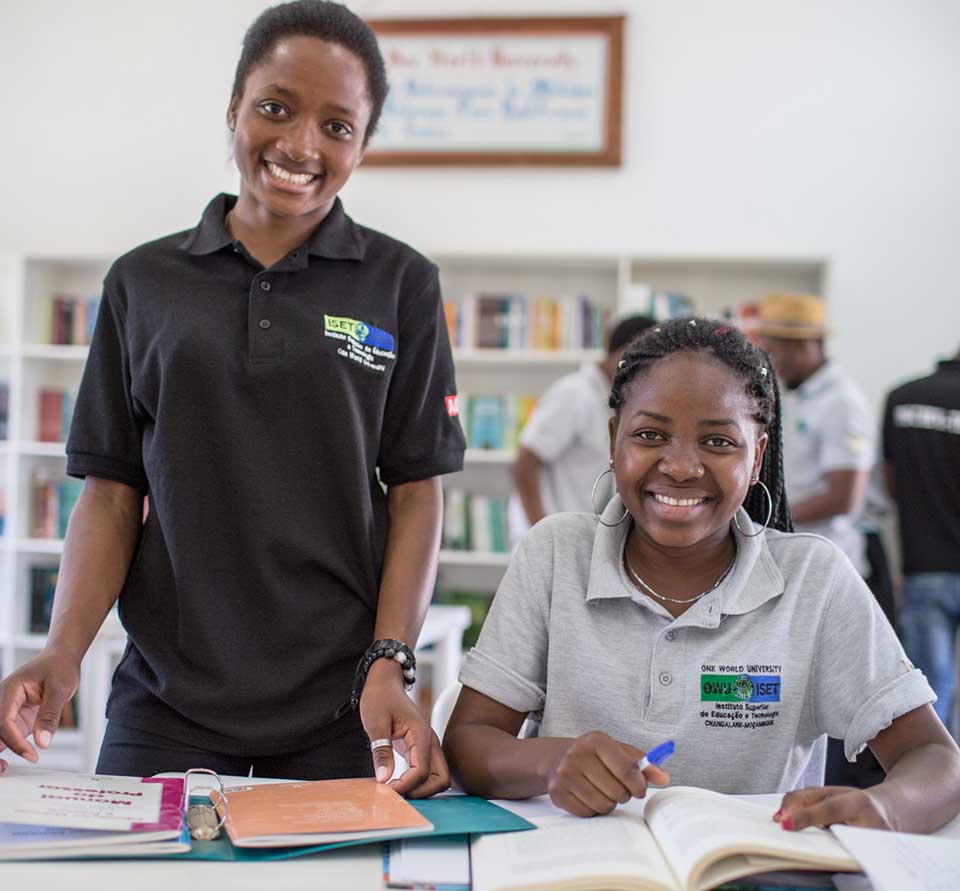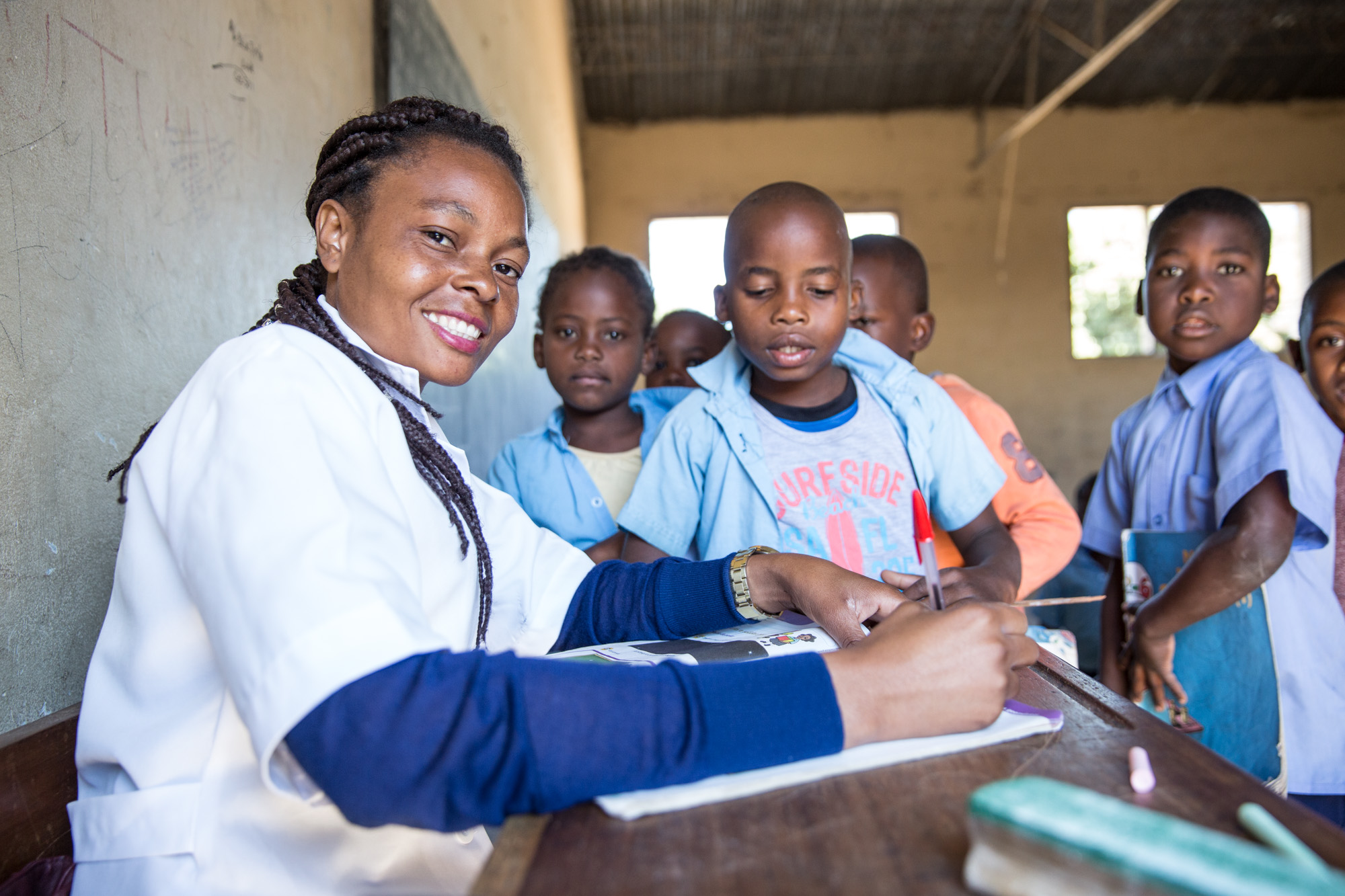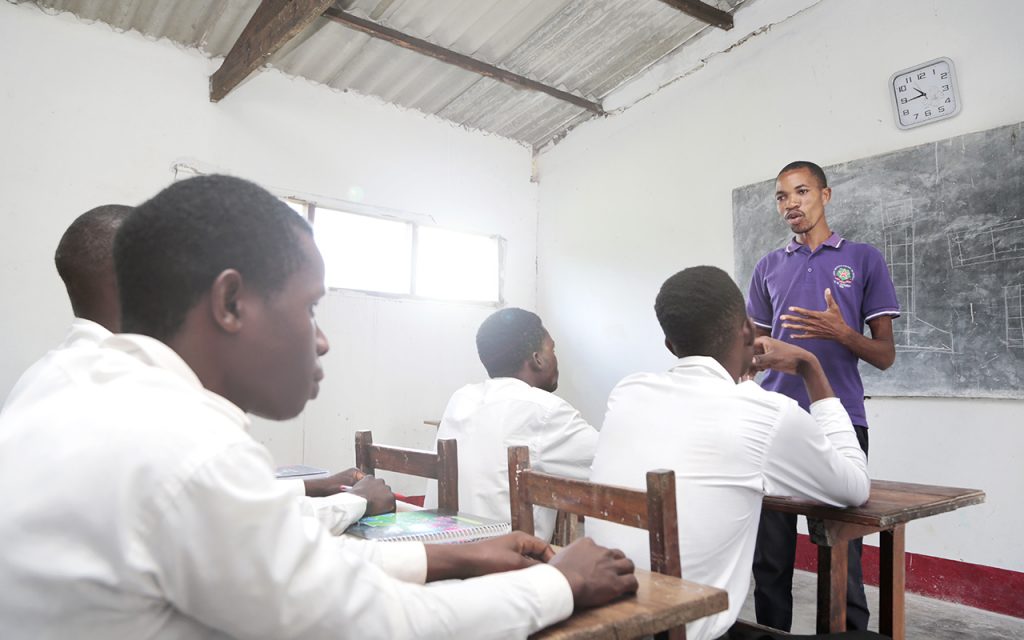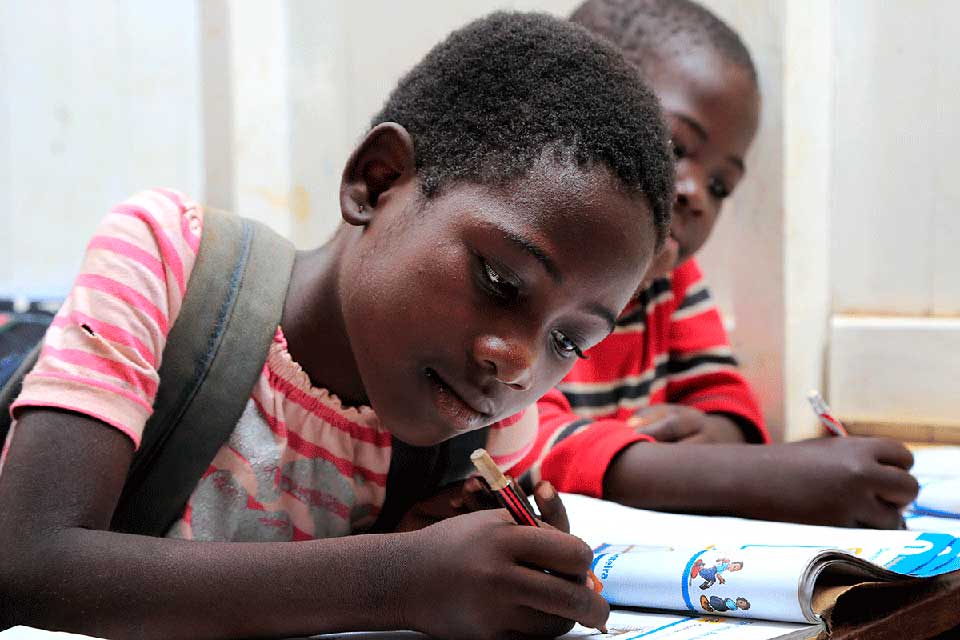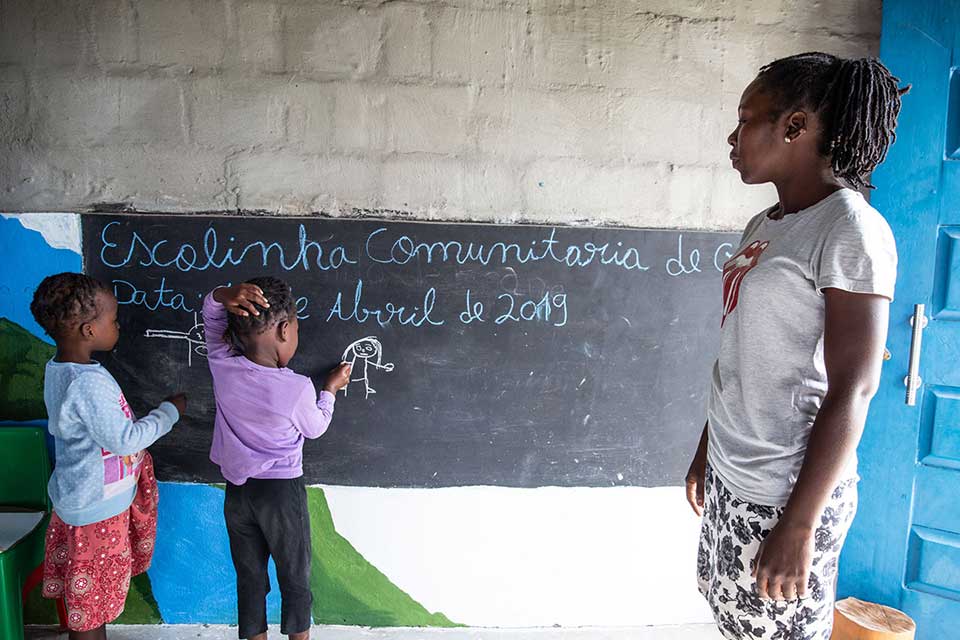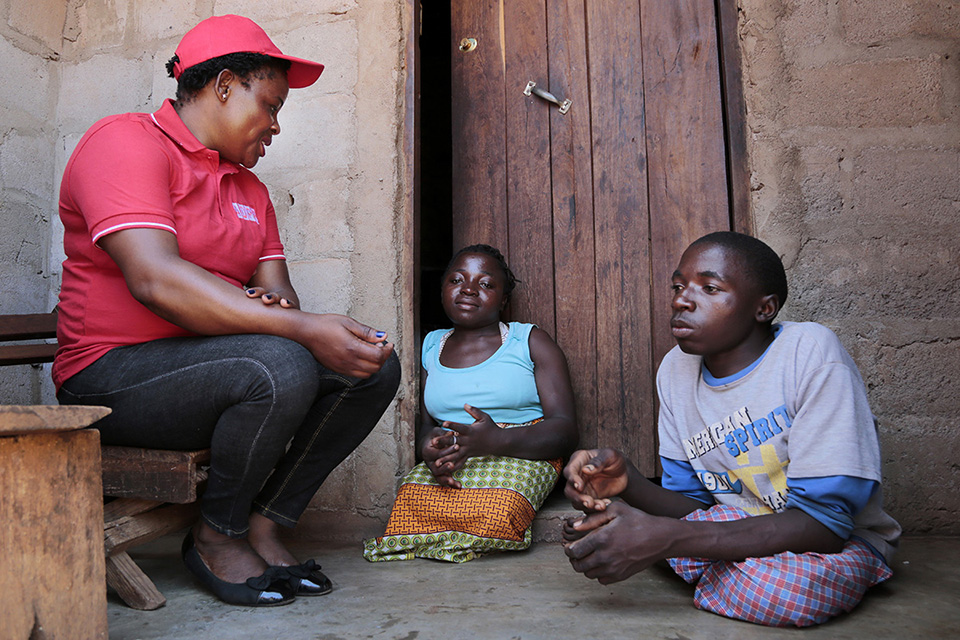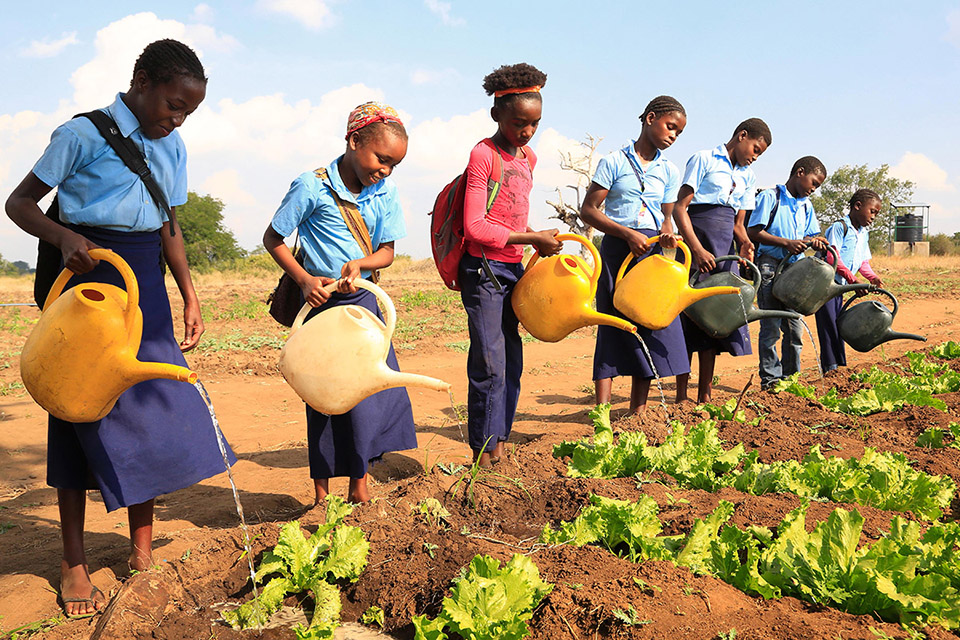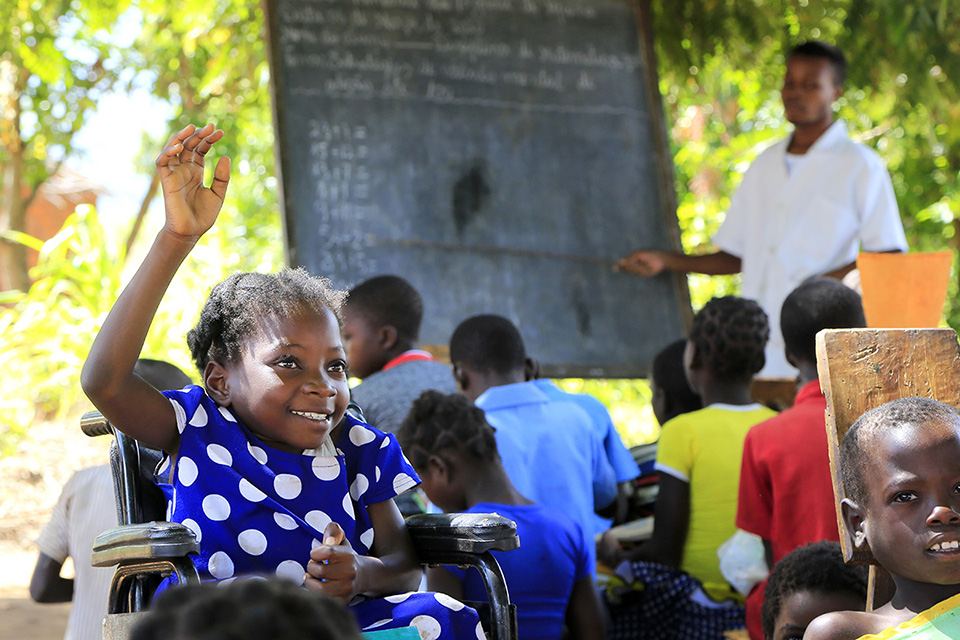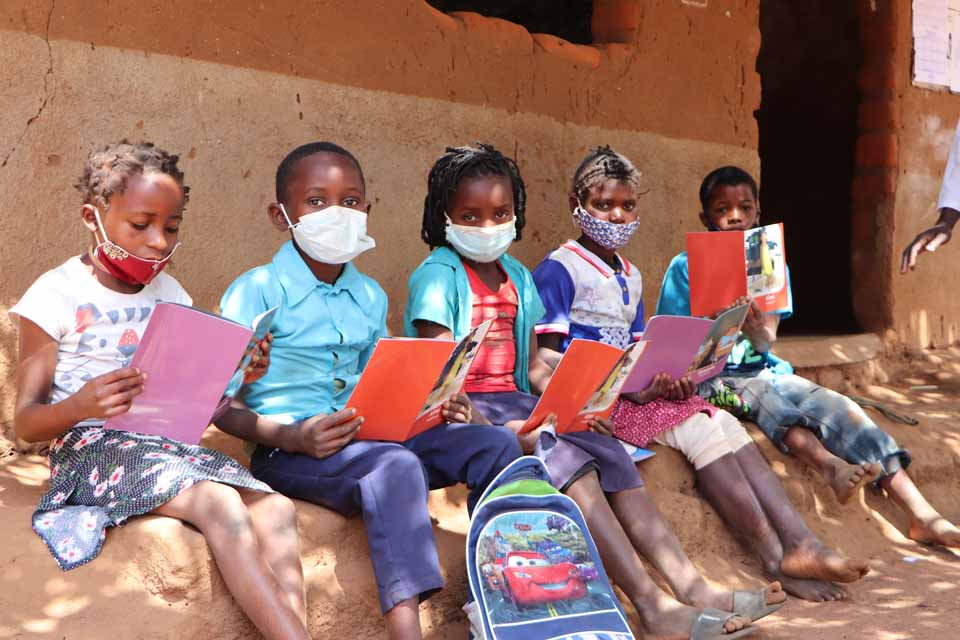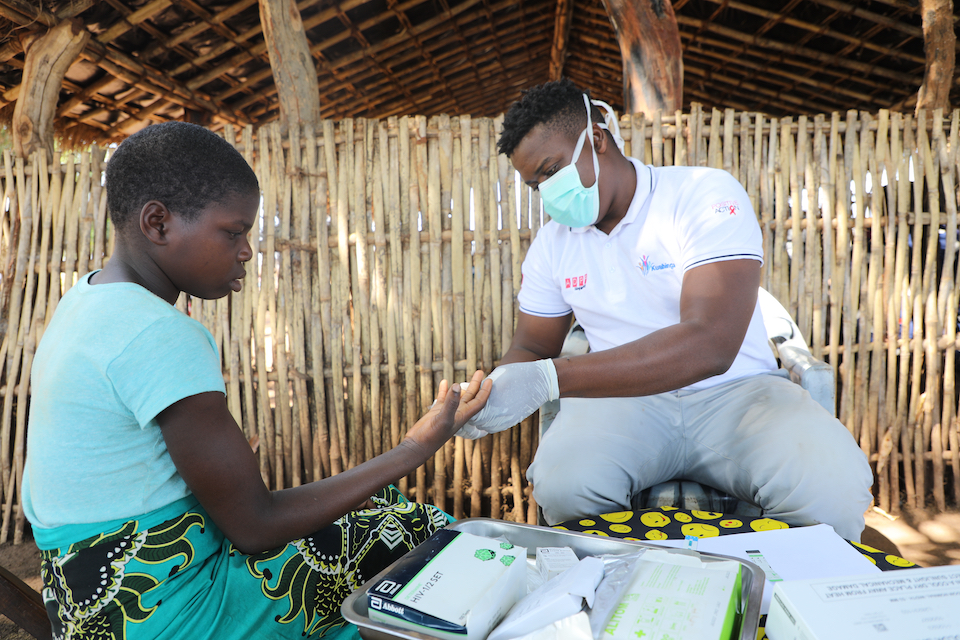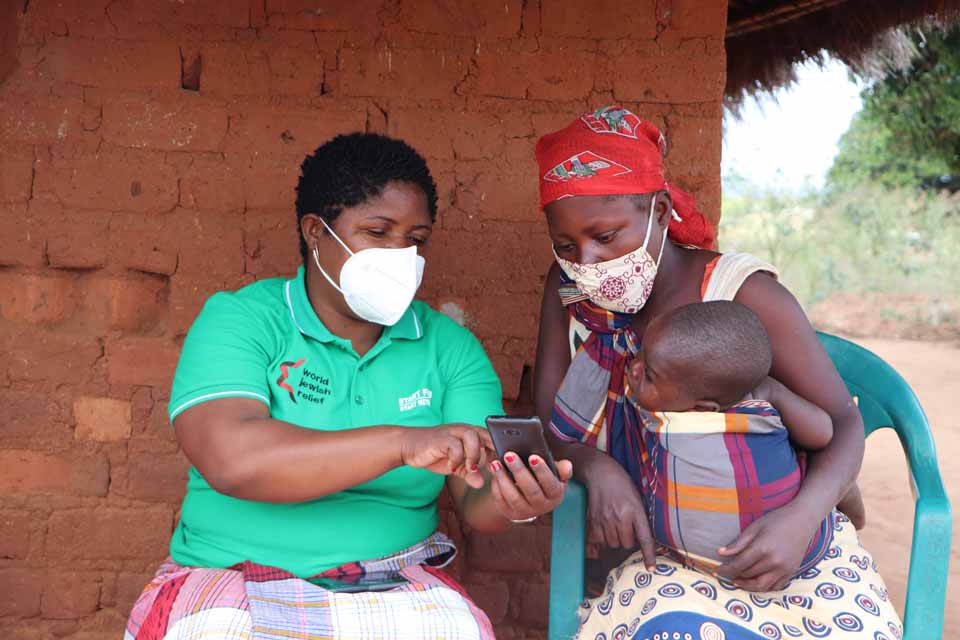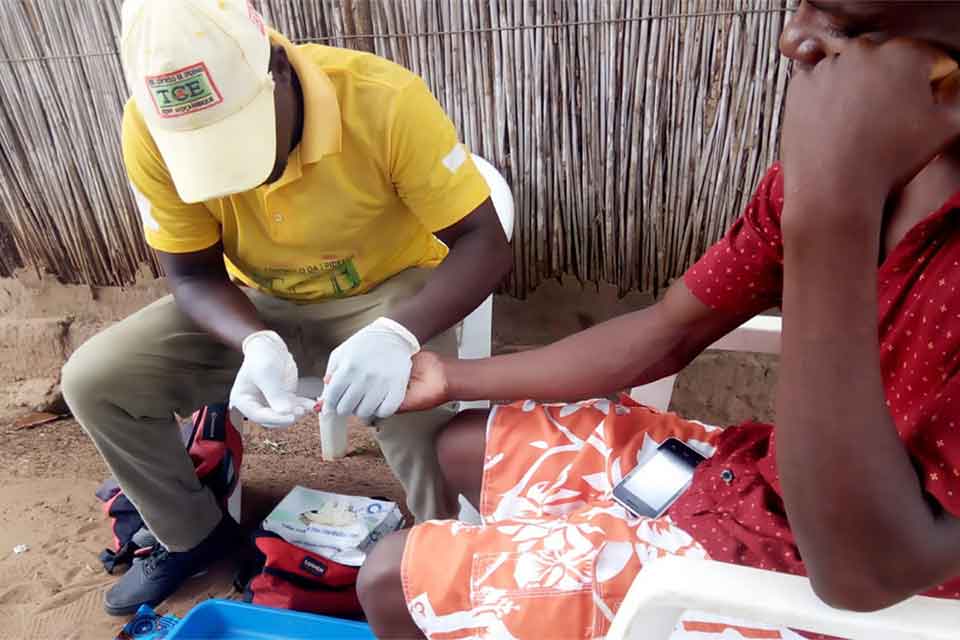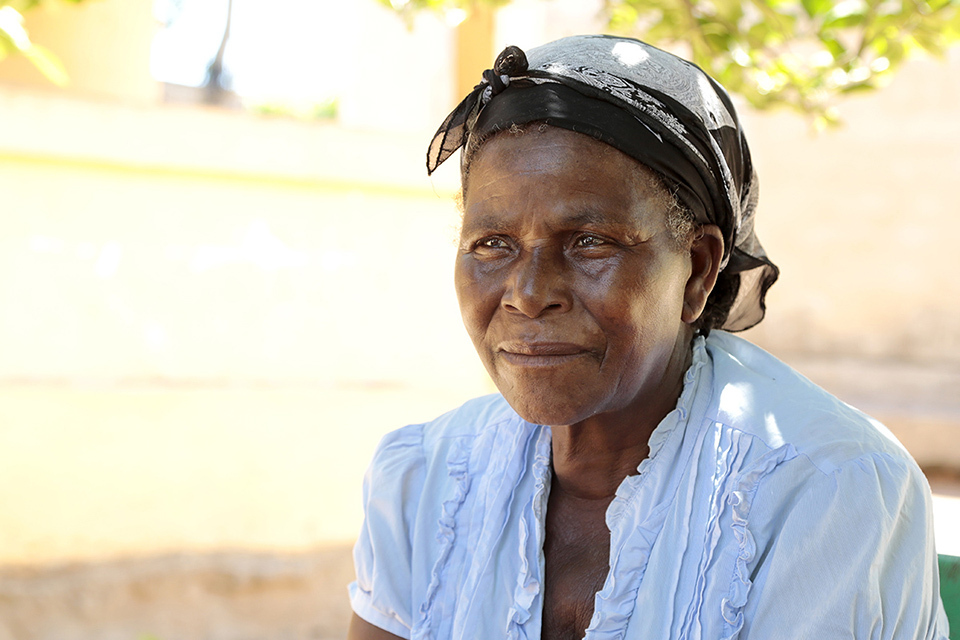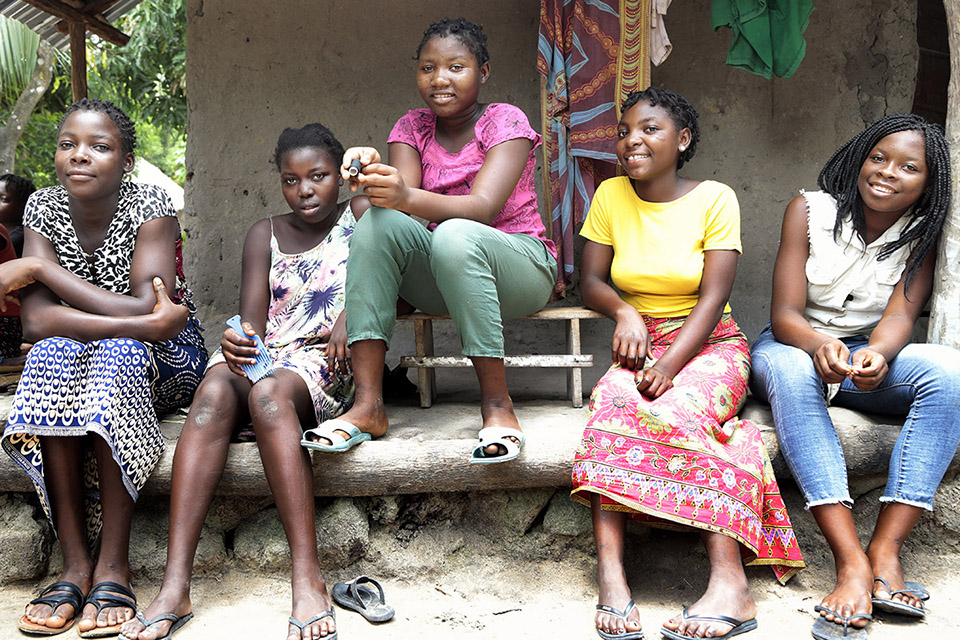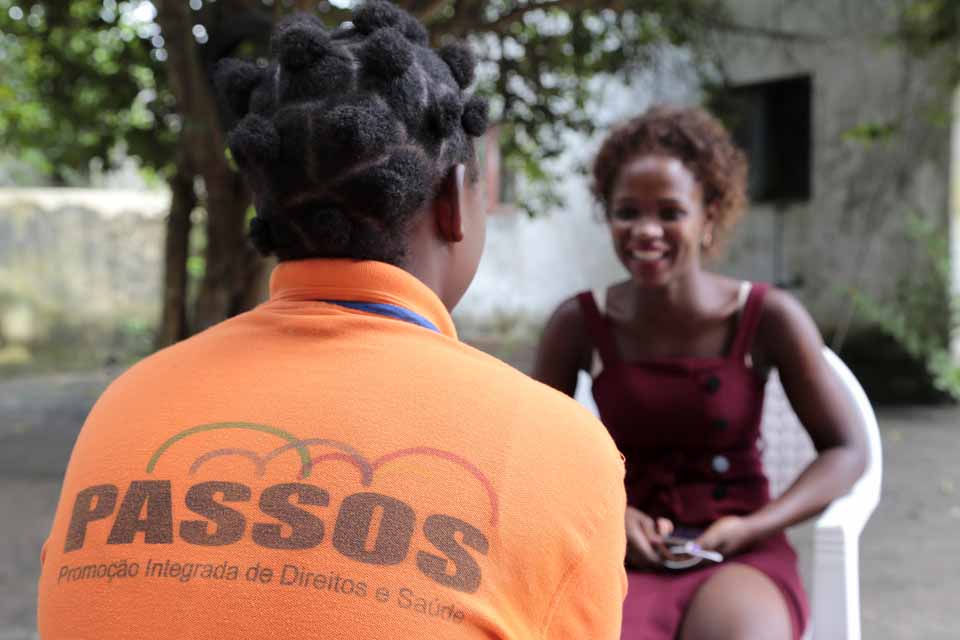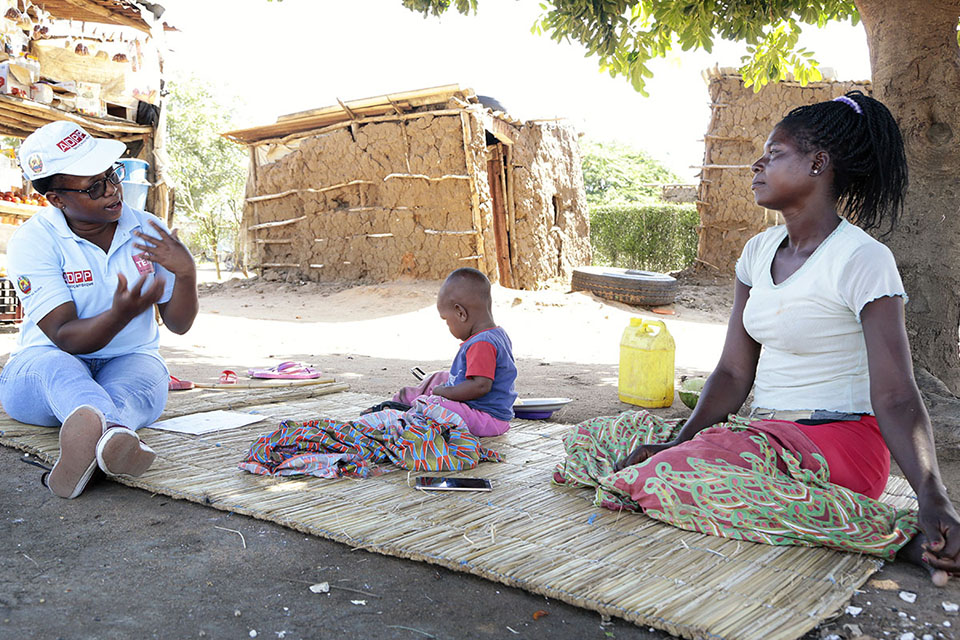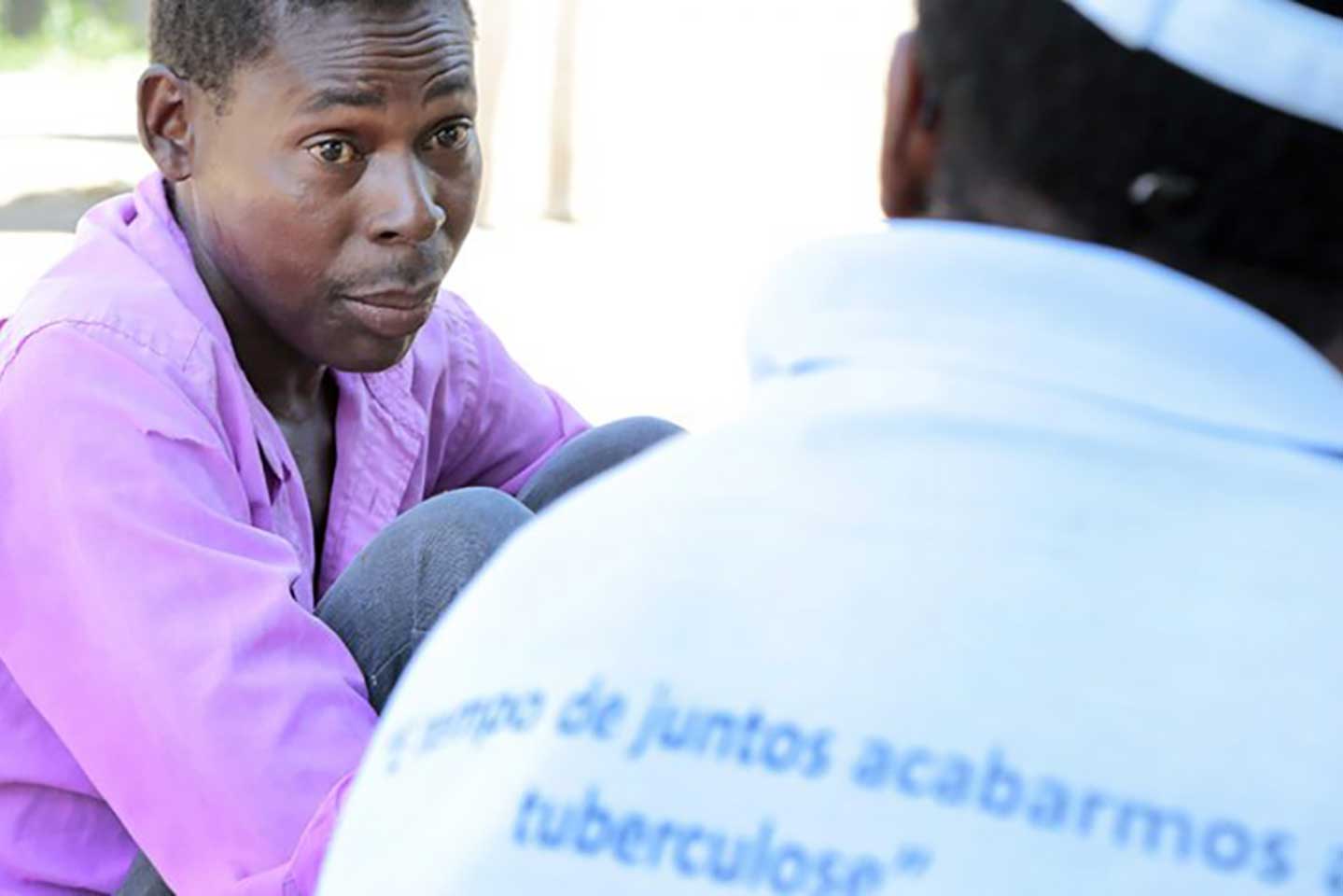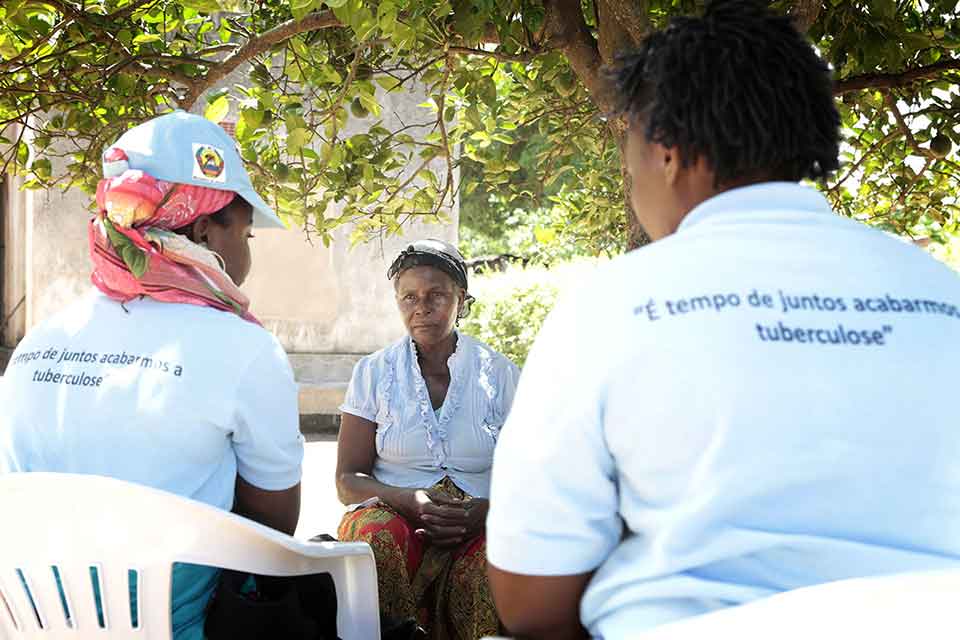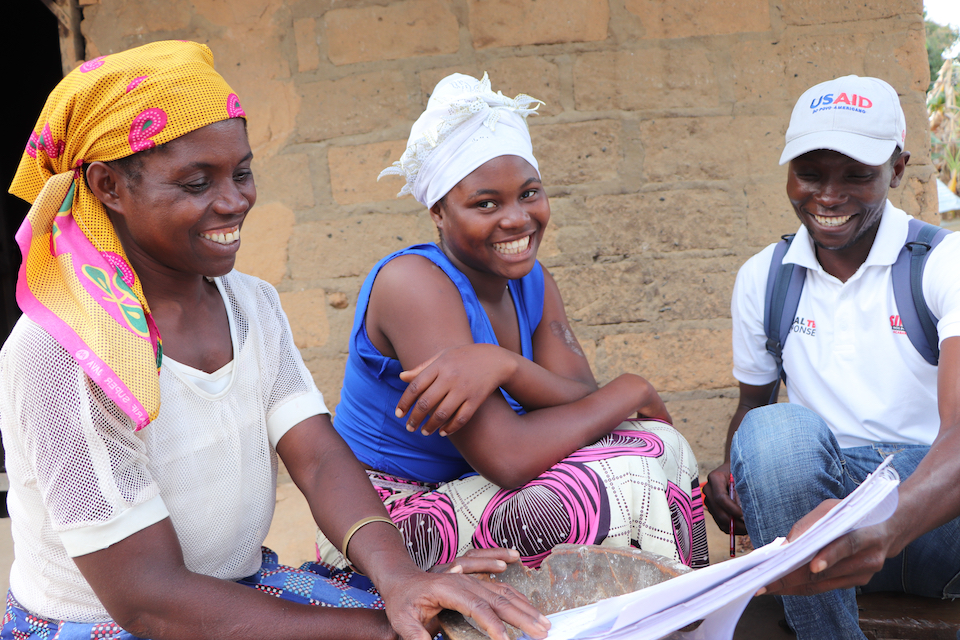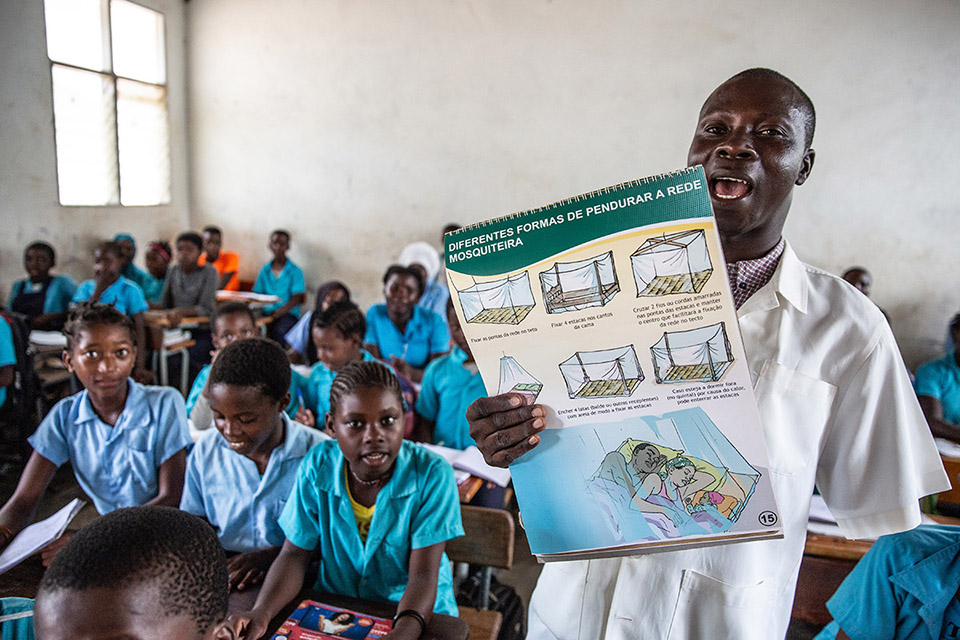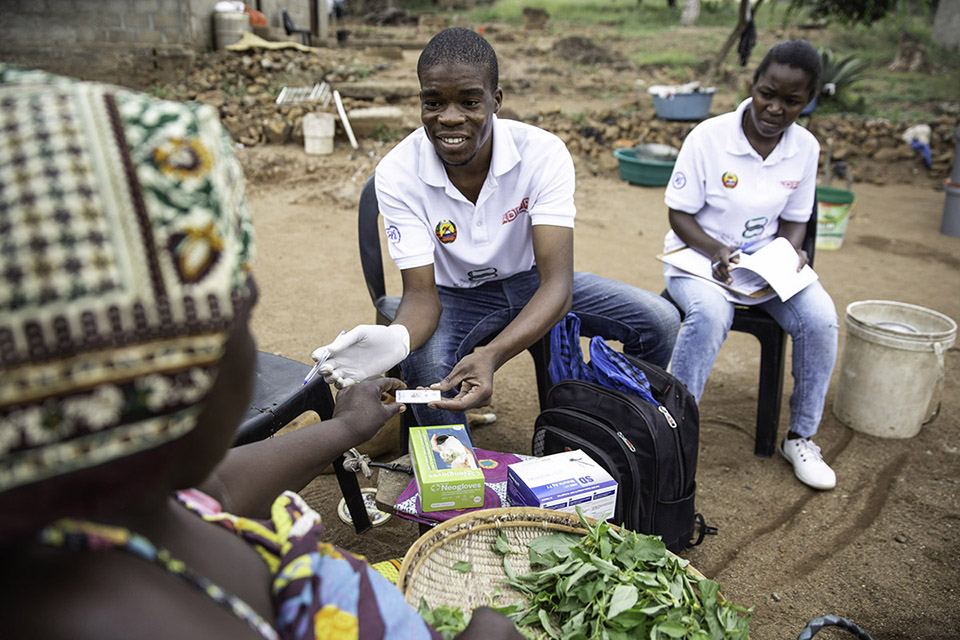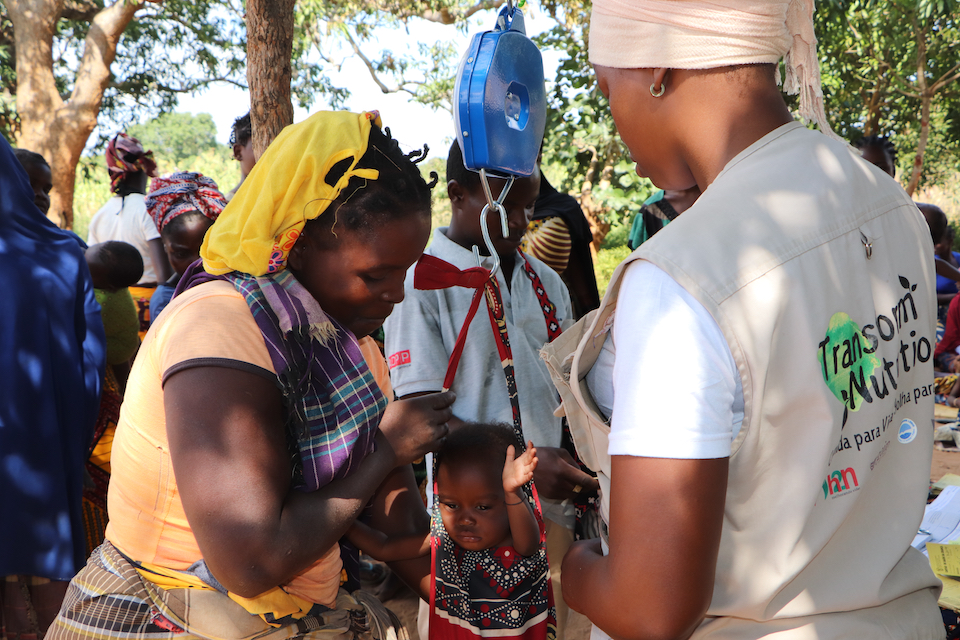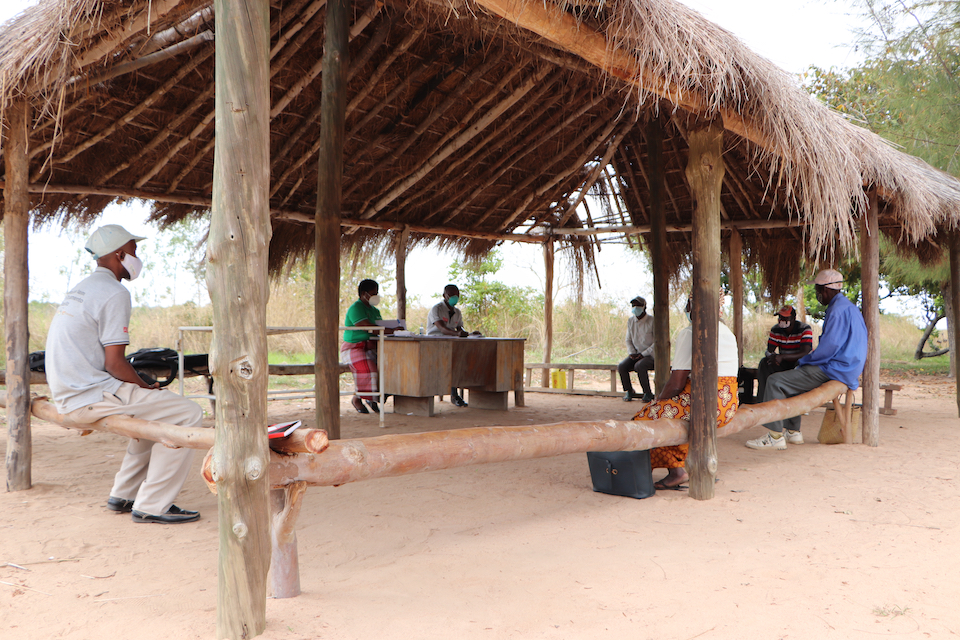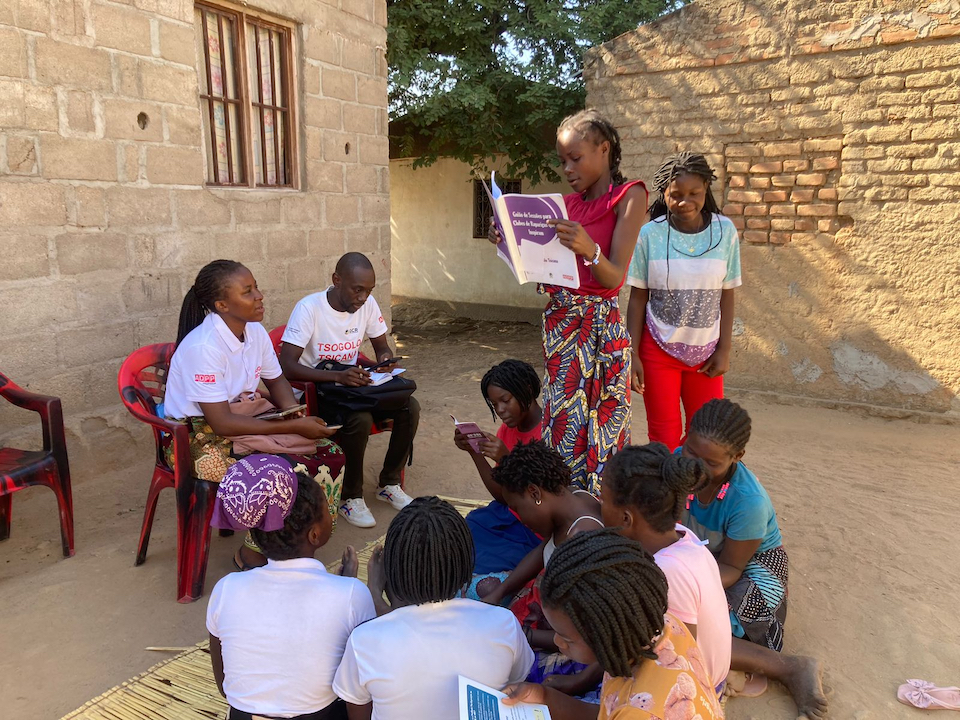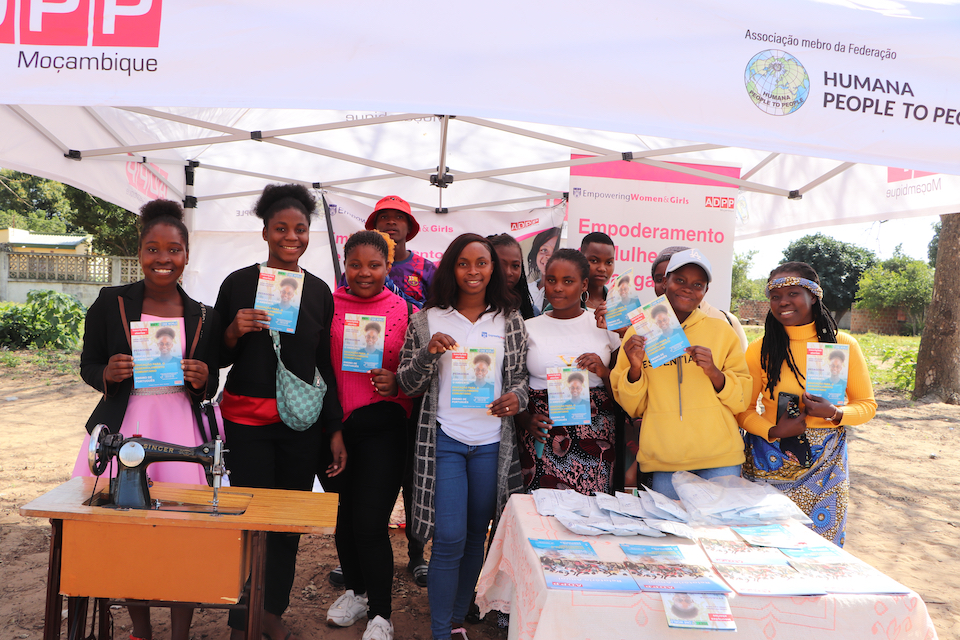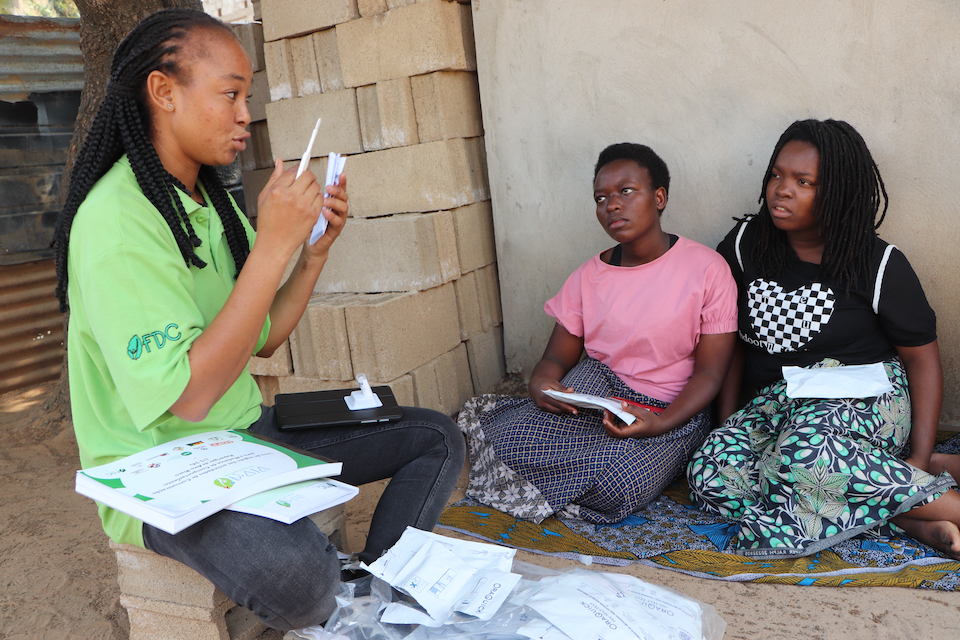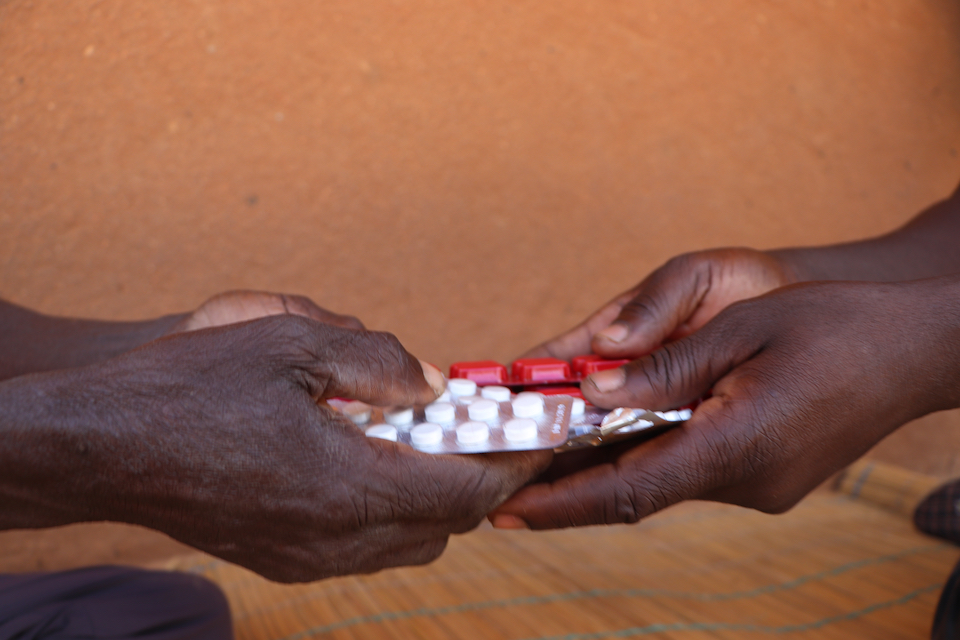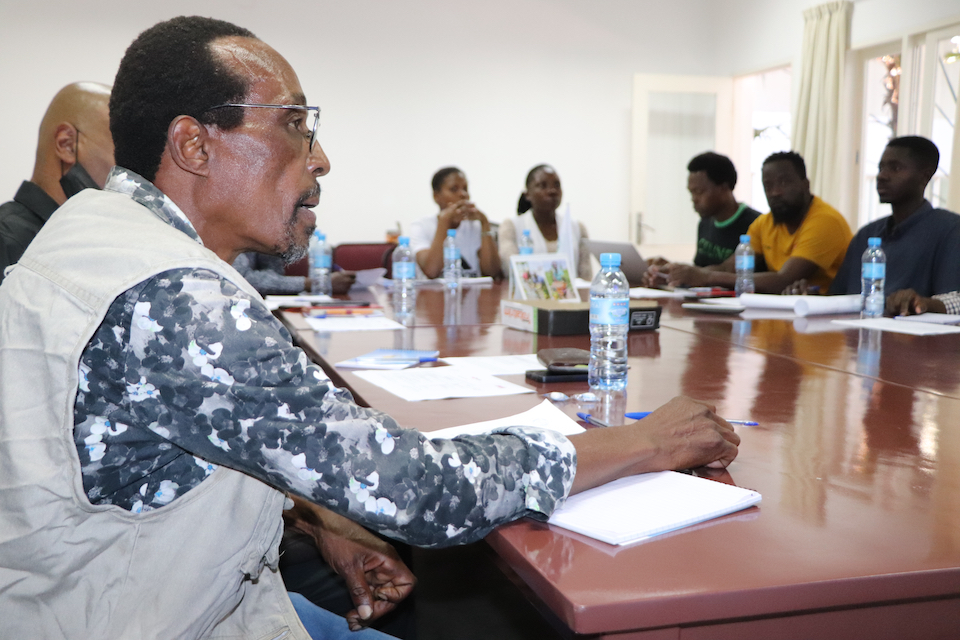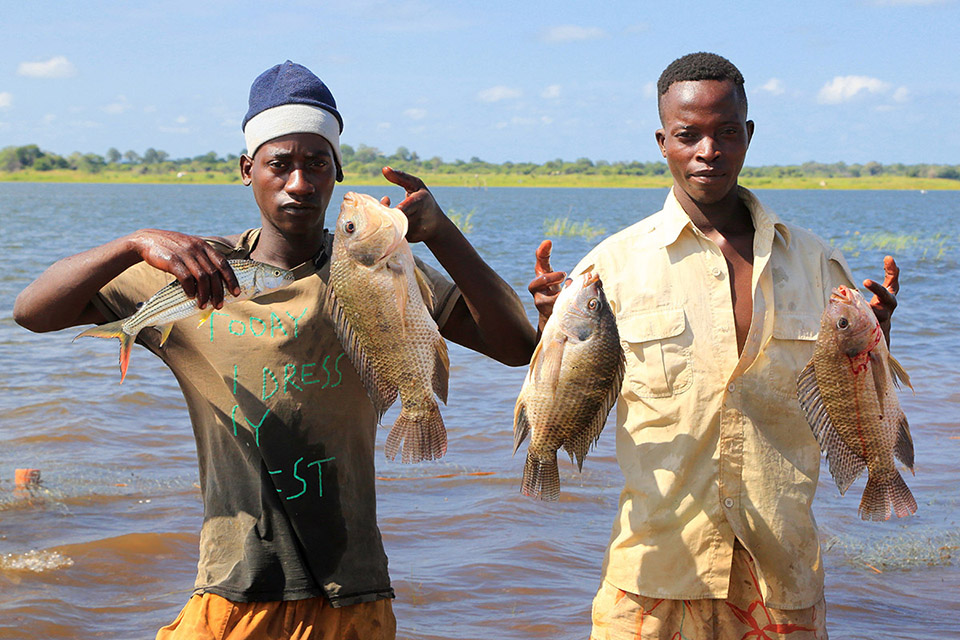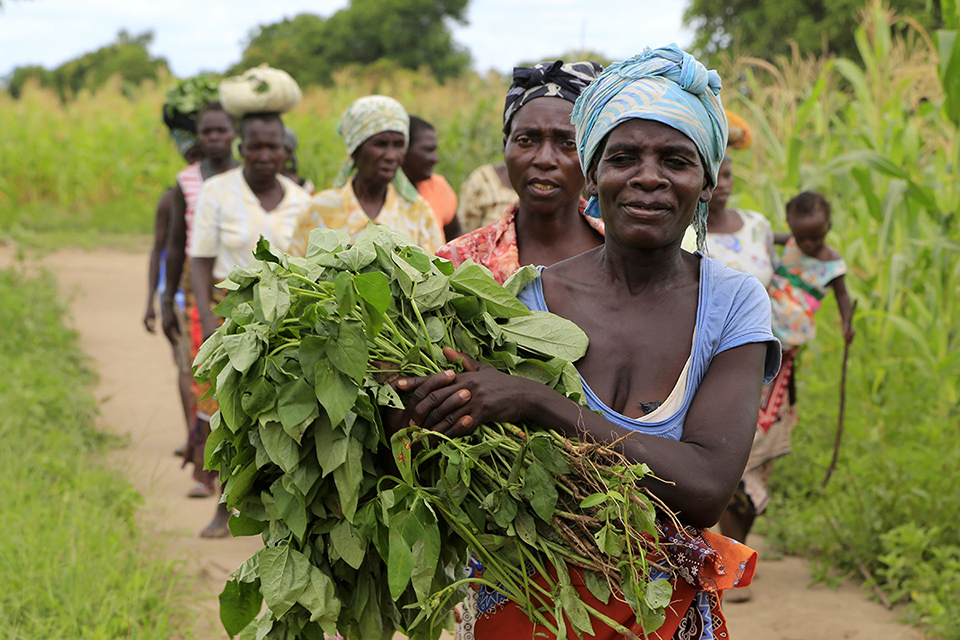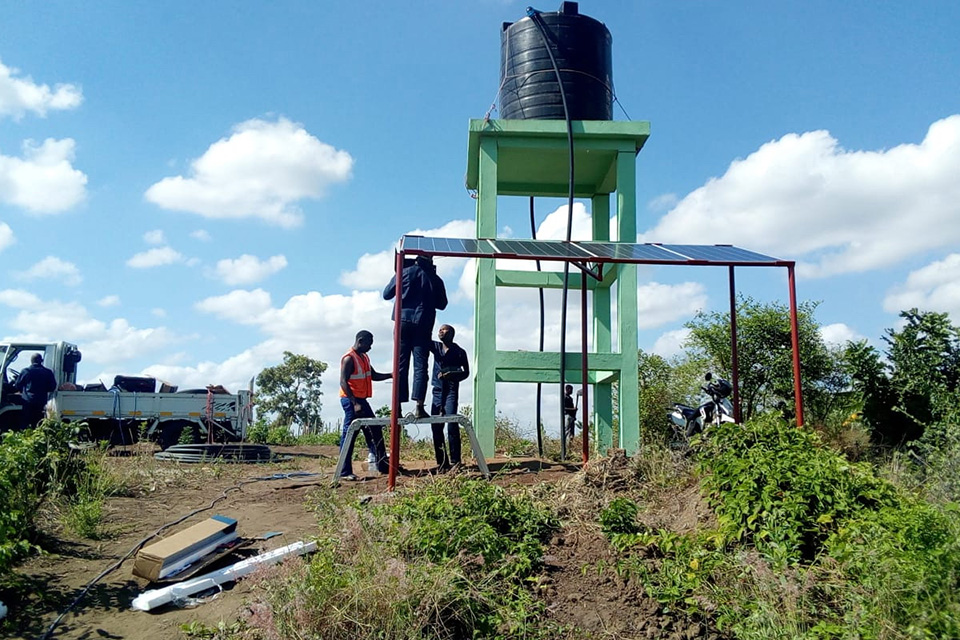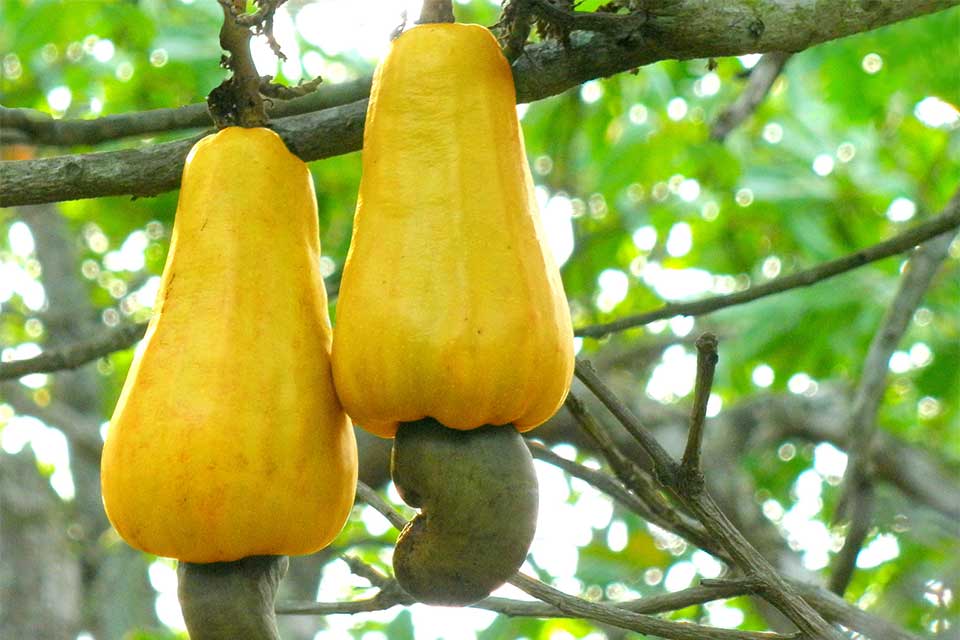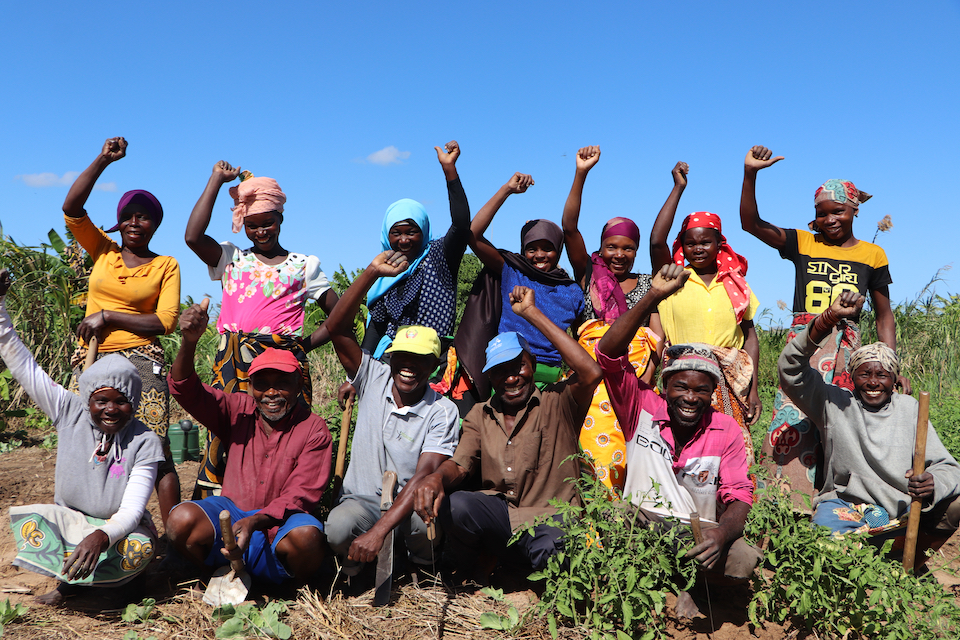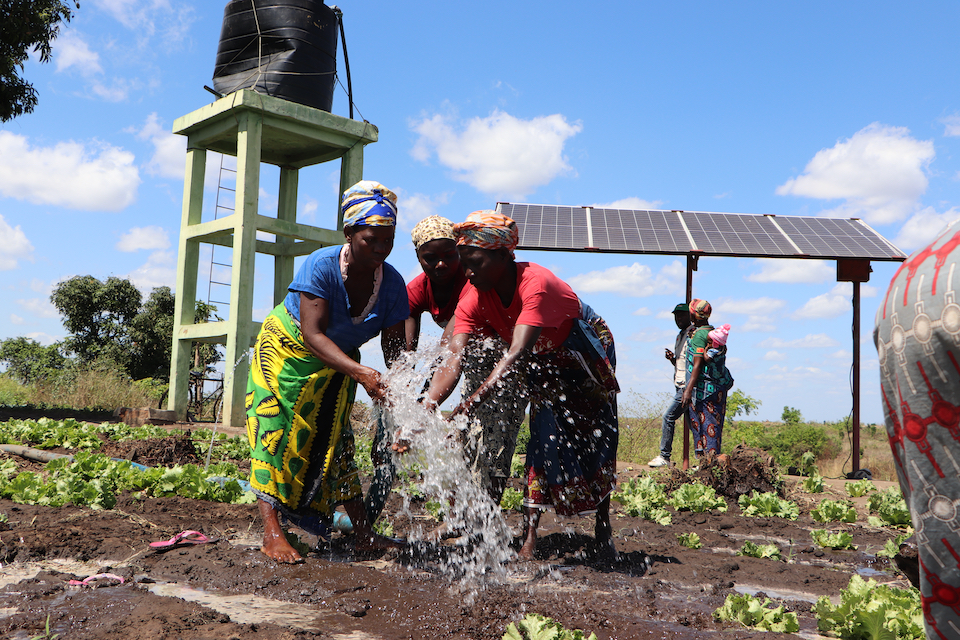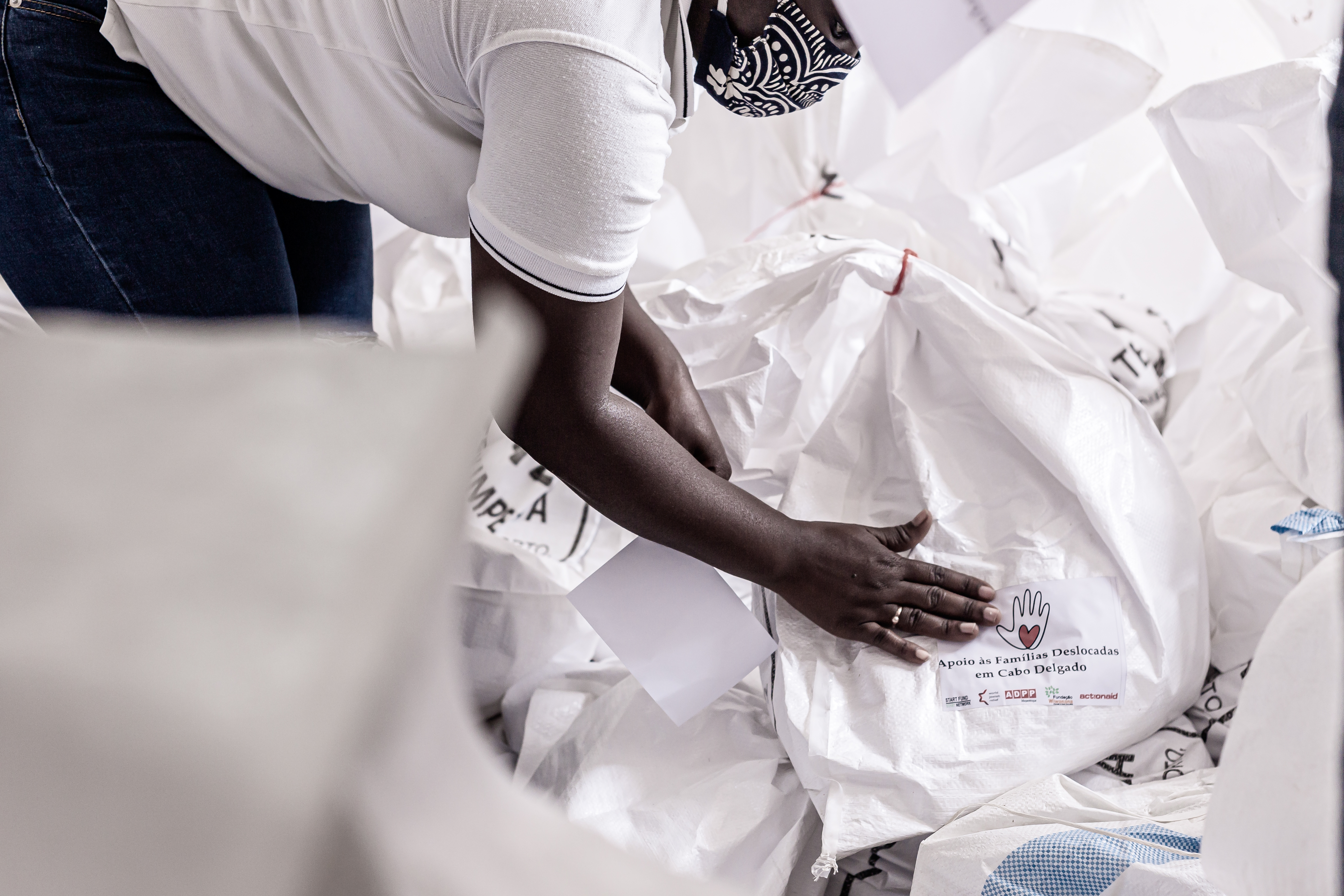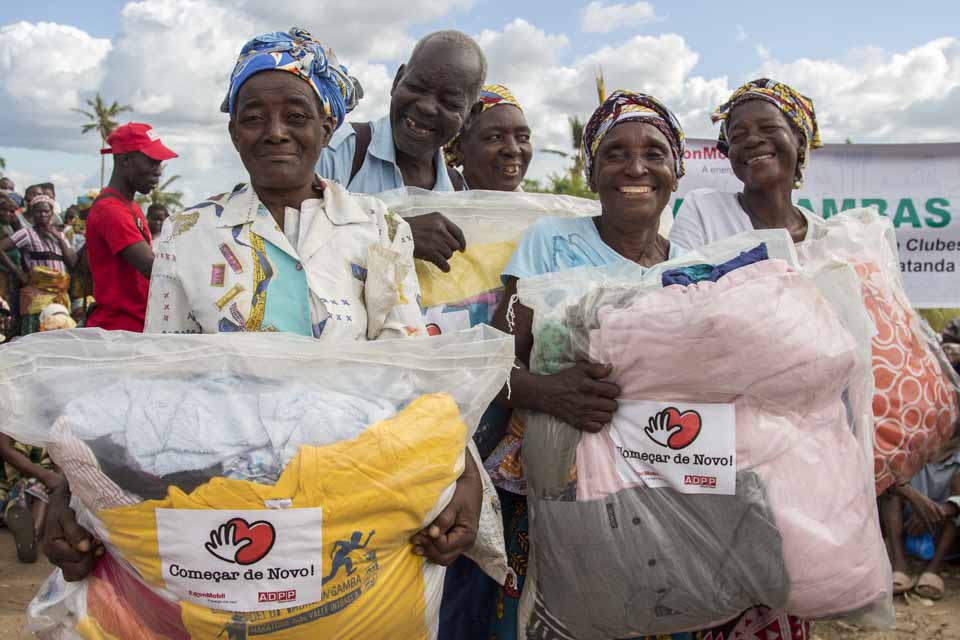| ISET - One World |
|
ISET – One World was established to train teachers and in 2005 got recognized as an independent institution of higher education.
The institute offers degrees in Pedagogy and Social Science through face-to-face and distance learning. The extraordinary life and learning at the institute in its rural setting in Changalane district, is established first by the organizational structure of the student’s life where the core group consisting of 10-15 students including their teacher becomes the vessel from where reality is investigated and acted upon. A manifold of programme elements place the student in the middle of a vibrant reality where the centre pieces of learning many times place the student outside the comfort zone of normal educational perceptions of learning.
Full name of the Project: “Instituto Superior de Educação e Tecnologia”, ISET - One World Principal Partners: Ministry for Science, Technology & Higher Education, Planet Aid with funds from USDA Other partners: Humana People to People member associations: Finland, Italy, Lithuania, Spain and USA Location: Maputo province |
| Teacher Training Colleges Of The Future - EPFs |
|
ADPP Mozambique has trained primary school teachers since 1993. ADPP’s Teacher Training Colleges, also known as Schools for “Teachers of the Future”, are found in all 11 provinces of Mozambique.
The colleges were established as a contribution to the Mozambican Government’s effort to improve the quality of primary education in the country. In 2021 ADPP’s had graduated a total of teachers 23,451. ADPP Teacher Training Colleges are unique because they respond to the realities of rural communities. The holistic programmes address the local economic, social and cultural factors, creating a bridge between schools and communities, teachers and students and students and schools management. To ensure that the students excel, the colleges use inclusive, innovative and participatory methodologies. The teacher training course allows the students to be at the center stage of their education and training, as drivers of their own learning.
Full name of the Project: Teacher Training Colleges of The Future “Escola de Professores do Futuro” (EPFs). Principal Partner: Ministry of Education and Human Development Other partners: Planet Aid with funds from USDA, Humana People to People member associations: Austria, Finland, Italy, Lithuania, Norway, Spain and USA Location: All provinces |
| Graduated Teachers’ Network |
|
The Graduate Teachers’ Network aims to give continuous support and promote further professional development for teachers after they graduate. Through this initiative ADPP contributes to a higher quality primary education in Mozambique. In 2019, the network reached out to more than 1,669 primary school teachers and influenced nearly 125,000 pupils in primary schools with child centered, gender sensitive quality education practices. The network uses a variety of methods to share knowledge and skills. It also promotes reading and writing clubs in the primary schools to develop a culture of reading, as well as to improve children’s reading and writing skills. Members of the network have also produced teaching aides together, constructed classrooms and started school’s vegetable gardens. |
| Vocational Schools |
|
Despite the impressive progress since the independence, the level of academic and vocational training in Mozambique remains low. In response to these challenges ADPP runs 3 Vocational Training centres in north, central and south of Mozambique.
Each school provides girls and boys, especially adolescent and youth with the necessary technical skills to increase their opportunities to enter the local labor market as employees or through their own income generation activities. The schools are offering programs in the areas of agriculture and livestock, civil construction, business administration, hospitality and tourism and community development. Each of the schools also take the role of community centers for development of competences offering short courses for vulnerable and out of school unemployed youths. Since their establishment more than 7,200 students have graduated from the different courses, while the same schools have over the last decade offered short courses for approximately 8,000 youths.
Full name of the Project: “Instituto Politécnico de Nhamatanda”, ”Instituto Politécnico de Nacala” Principal Partner: State Secretariat for Technical and Professional Education Other partners: Municipality of Baden, Austria, Humana People to People member associations: Austria, Italy Location: Sofala and Nampula province |
| Community Schools |
|
ADPP is committed to improving and promoting equitable access to primary and secondary education.
ADPP runs two primary schools, the “Ants of the Future” school in Chimoio, Manica province, and the “Children’s Town” in Maputo City. Both schools provide education and shelter for orphans and vulnerable children. ADPP believes that important life skills are learnt beyond the school curriculum. As a result, in addition to the national primary school curriculum, the schools conduct a range of extracurricular activities. As well as helping to identify and nurture children’s talents, these extracurricular activities equip these children with several vital life skills such as teamwork, networking, leadership, and decision making. ADPP also runs two secondary schools, “No Caminho da Vitória” and “Patrice Lumumba”, in Maputo province. Over 2,000 children and young people attend these four schools annually, some of whom might not have had a chance of going to secondary school.
Full name of the Project: “Formigas do Futuro”, Chimoio, “Cidadela das Crianças”, Maputo, “Escola Secundária No Caminho da Vitoria”, Maputo Principal Partners: Ministry of Education and Human Development, Ministry of Women and Social Welfare Other partners: City of Vienna, Commonwealth of Learning, Humana People to People member associations: Italy, Lithuania, Portugal. Location: Manica and Maputo province and Maputo city. |
| 70 Pre-Schools (ended in 2019) |
|
During the early years of life, children need a supportive learning environment. This includes access to adequate healthcare, nutritious food, and a stimulating environment to support cognitive development.
One of the major challenge in achieving good results in primary education in Mozambique is the widespread absence of pre-school education and inability to speak Portuguese. To address this, ADPP has implemented a pilot programme called “70 Pre-Schools” with the aim of promoting pre-primary education in 70 communities in Maputo province. The project began in 2014 and ended in 2019 and benefitted 4,665 children, 980 parents and 770 members of Community Coordination Committees (CCCs)*. 70 pre-schools have been constructed and 280 facilitators have been trained. It has been shown that children who attend the 70 pre-schools learn faster than those who did not attend. |
| Promoting Inclusive Education |
|
This project, funded by Light for the World, aims to promote inclusive education in Sofala and Manica provinces by strengthening the capacities of teachers in inclusive education, establishing a Resource Centre specialized in inclusive education and by strengthening inclusive education in Chimoio, through cooperation between the Teacher Training Colleges in Chimoio and Nhamatanda.
The Project has made great strides in promoting understanding of the concept of inclusive education and in increasing respect for the rights of people with disabilities. In 2019, the trainings, the Braille clubs and field trips, benefited trainee teachers and 4 Teacher Trainers with new skills, practices, better attitudes and inspiration for inclusive education and for working with people with disabilities. Some of the new skills were reading in Braille, community-based rehabilitation, the development of didactic materials on disability, as well as how to deliver disability-sensitive pedagogy.
Full name of the Project: Promoting Inclusive Education Principal Partners: Light for the World Location: Sofala, Manica provinces |
| Food For Knowledge |
|
ADPP implemented this project in Maputo province, covering the districts of Manhiça, Matutuine, Moamba and Magude. The project direct benefits almost 90,000 children through interventions in 7 programme areas, namely: School Feeding, Literacy, School Gardens and School Farms, Water and Sanitation, Nutrition Education, Construction and Extra-Curricular Activities.
School feeding is at the heart of the FFK project, and a critical aspect of the program, which aims, among others, to improving school attendance. FFK also trained primary school teachers on methods of teaching literacy in local languages. Students participating in local language instruction performed significantly better when to those receiving only Portuguese instruction. To date, the project has also successfully facilitated access to drinking water sources for all the 271 schools. The project provided nutrition education to teachers, volunteers and students, which allowed the transfer of knowledge to students and communities, thus expanding the results of the project.
Full name of the Project: School Feeding Project through The McGovern-Dole International Food for Education And child Nutrition Programme under Planet Aid Inc. Principal Partners: Planet Aid with funding from USDA Implementing partners: Cambridge Education, WISHH (World Initiative for Soy in Human Health) Other partners: Ministry of Education and Human Development, Humana People to People member associations: Lithuania, Spain Location: Maputo province |
| Mapunziro Improving education quality and inclusion in primary schools |
|
Mapunziro means education – wisdom in local Chichewa language.
This project aims to improve the quality of primary education in Zambézia, as well as students’ educational performance in 14 primary schools in the districts of Milange, Molumbo and Morrumbala.
In 2019, it trained 32 teachers in inclusive education, 168 school council representatives in school governance and established 14 sports and cultural clubs with the participation of 560 children. It also established 14 reading clubs to build 280 pupils’ competency in reading.
Full name of the Project: Improving Teaching Quality and Inclusion in Primary Schools Principal Partners: Ministry of Foreign Affairs Finland, UFF Finland Location: Zambezia province |
| Apoiar a Ler |
|
This project’s objective is to improve the quality of education and learning outcomes of over 300,000 children in 12 districts of Nampula province.
The project "Apoiar a Ler" uses the think-cell tool that allows you to quickly develop professional looking presentations using PowerPoint. think-cell is free to the non-profit organisation and takes only a few minutes to learn, 70% less time to create graphics and 90% less time to make changes. If you would like to learn more about think-cell, visit the link https://www.think-cell.com Full name of the Project: “Apoiar a Ler”, Community Engagement in Bilingual Education Nampula) Principal Partner: USAID Implementing partners: APRODER, h2n, Rovuma University Location: Nampula province |
| Integrated Education Project in the Paquitequete Community in Pemba, Cabo Delgado |
|
The intervention aims to ensure long-term quality educational and professional training for children and young people, in order to contribute to ensuring that all girls and boys in Paquitequete complete an equitable and quality primary and secondary education, leading their social and personal development. It is expected that the project will improve school/learning performance of children, increase inclusive access to primary education and increase community awareness on the importance and sense of responsibility on multiple basic topics such as education, sports, environment, health & hygiene, gender rights, among others.
Full name of the Project: Integrated Education Project in the Paquitequete Community in Pemba, Cabo Delgado Principal Partner: ENI Rovuma Basin B.V Location: Cabo Delgado province |
| Holistic and integrated approach to Education in Palma District, Cabo Delgado |
|
The project is a plan B aimed to contribute to a safe re-opening of 11 target schools in Palma as a counteraction to the adversities caused by the COVID–19 pandemic which closed all educational establishments countrywide. Accordingly, the project will improve conditions for a safe re-opening of 11 schools in Palma-Sede, aligned with Decree 21/2020 which states that schools reopening is conditional to the creation of appropriate conditions. This will have a direct positive impact on the opportunity for children to return to school. In collaboration with SDEJT, the project has designed 4 major activities that can be categorized under the umbrella of creating conditions for reopening schools safely. These are: 1) sanitation and hygiene (install water conditions and tip-taps, construct latrines, and provide hygiene materials); 2) awareness activities (Raising awareness to teachers, parents and guardians), 3) equipping schools for extra-curricular activities and recovering schools infrastructure. In parallel, we are also doing literacy and numeracy classes for parents and community members; including basic financial literacy contents will be organized at schools.
Full name of the Project: Holistic and Integrated Approach to Education in Palma District, Cabo Delgado Principal Partner: ExxonMobil Moçambique, Limitada Other partners: Humana People to People member associations: Finland Location: Cabo Delgado province |
| Graduate network CD (DAI) |
|
The objective of the project is to empower 41 EPF Cabo Delgado graduates (most of whom are displaced) in strengthening community resilience at local level and enable vulnerable youth to resist extremism in Cabo Delgado Province. It aims to develop an online platform to facilitate further training and tutoring of Graduates in peace education, conduction of community dialogues and focus groups, COVID19 prevention. The graduates will conduct a rapid needs assessment conducted in target communities by graduates to inform the Phase II project. The project’s activities include: creating a network of peers among graduates, developing a diagnostic tool to implement rapid assessment of needs in communities and finally conduct a diagnosis and produce recommendations for Phase II. Full name of the Project: Teachers Graduate Network for Community Resilience Principal Partner: DAI Global Location: Cabo Delgado province |
| Promoting Inclusive Education and Gender Equality |
|
The Promoting Inclusive Education and Gender Equality project is implemented in Sofala Province - Beira, Búzi, Dondo, Gorongosa and Nhamatanda Districts and in Manica Province - Chimoio City. It will benefit 12 primary schools where it will hold training sessions for pupils in gender inclusion and disability, from 4th to 6th grade; The aim of the project is to: · Strengthen capacities in the Teacher Training Colleges in Inclusive Education as a starting point for gender transformation actions; · Create environments in the primary schools to retain girls, especially those with disabilities, through the creation of gender inclusion clubs; · Strengthen cooperation between the Nhamatanda and Chimoio EPFs in the field of gender inclusion. In order to implement the project, safe spaces will be created in the EPFs, where 56 gender and disability inclusion promoters are selected (36 in EPR Nhamatanda EPF and 20 in the EPF Chimoio). 50% of the promoters will be women and 50% men; In the five districts covered in Sofala Province, home visits are part of the activities of the programs, which is why the project only planned home visits for Chimoio; The project plans two annual Open Days at EPF, one during Mozambican Women's Week (April 3 to 8) and the other on October 11, International Day of the Girl; 8 scholarships will be made available to young people with disabilities to attend the 3 year teacher training course at the EPF in Nhamatanda and Chimoio where 4 young people will start the course in the 1st year of the project and 4 young people will start the course in the 2nd year. Of the eight scholarships, 60% are for women. The activities are done in strong collaboration with the Provincial Department of Education and Human Development. The project will have Project Coordinator/team leader, 2 Focal point, 1 community mobilizer, Financial Supervisor Full name of the Project: Promoting Education and Gender Equality Principal Partner: Light for the World Location: Sofala and Manica |
| Paquitequete Primary School Project |
|
This is an education project in Pemba, Cabo Delgado. It involves 2 primary schools and 2 Kindergartens.. The objective is to contributing to a long-term quality educational and professional training for children and young people, to ensure that all girls and boys in Paquitequete complete an equitable and quality primary and secondary education, leading to their social and personal development. This is especially to minimise the risk of these young people inadvertently participating in the activities of the insurgents in Cabo Delgado considering that Paquitequete is one of the poorest neighbourhoods in the Pemba city and is mostly inhabited by Muslim population. There are 4 activities that will be implemented:
Full name of the Project: Paquitequete Primary School Project Principal Partner: Eni Location: Cabo Delgado, Pemba |
| Aprender+ - Niassa and Manica Province |
|
The purpose of the program is to support the government's efforts to improve the literacy skills of elementary school pupils in Mozambique, through 3 strands, namely: (1) the use of structured lesson plans; (2) continuous professional development for teachers and (3) aligned formative assessments to monitor pupil progress. The project is implemented in two provinces Niassa and Manica where we started the pilot project, extending the number of districts and schools. The activities is taking place in 305 schools in 13 districts, in Niassa 53 schools in one district, Lichinga, and in Manica in 12 districts, covering 252 schools. The plan is to train 700 primary teachers, 305 school managers, 83 monitors ( Directores das Zips), 305 Coaches (Pedagogical directors) and technicians from SDEJT, DPEDH, SPAS, in coordination with the IFPs and EPF trainers who are part of carrying out the training exercises. The project is using a methodology of training in cascade, where there is a first phase - ADPP team is trained by the World Bank to be familiar with the contents of the training. This training includes the participation of ADPP Keys staff. The second phase is the training of IFP/ EPF teacher trainers, the provincial technicians (DPE and SPAS) at the level of each province. The third phase is the training of district monitors and technicians in each province. The fourth phase is the training of the Coaches (DAEs) and teachers at district level. This organization will allow the sustainability of the project because we will have trainers at Provincial, District and Zip level, which can facilitate the training even with the end of the project, as they will have acquired knowledge in the area of teaching methodologies in the early grades. Full name of the Project: Aprender+ - Niassa and Manica Province Principal Partner: World Bank Location: Niassa and Manica Province |
| TIPOTE |
|
The project aims to contribute to the ongoing process of improving the quality and relevance of teacher training programs at two Mozambican higher education institutions, UP-Maputo and ISET-One World. The expected impact of the project is to strengthen the capacity of UP-Maputo and ISET-One World to deliver and develop quality teacher training that provides trainees with better skills in inclusive education in various Mozambican contexts. In doing so, the project contributes to the Education Strategic Plan and to the Government of Mozambique's overall objective of achieving Sustainable Development Goal 4 of the United Nations 2030 Agenda for Sustainable Development: to ensure inclusive and equitable quality education and promote lifelong learning opportunities for all. Activities: · Organizing the training of teacher trainers and other staff (training of trainers) workshops · Staff exchange – mobility, study visit to South Africa. · Upgrade digital technologies (video/audio studios) · Organize practical training on the use of digital technologies for selected teacher trainers and Mentoring · Create a platform with digital training material for in-service teachers. · Innovate and test co-teaching in selected teacher training courses as a practical solution for inclusive education (e.g. special needs teachers and subject teachers) · Prepare a guide for teachers on (tested) methods for strengthening learning communities · Innovate and test context-relevant practical methods in the field of science (with an emphasis on sustainability) · STEM Clubs (Science, technology, engineering, and mathematics) centred on girls – pilot. Full name of the Project: TIPOTE Principal Partner: JAMK Location:Maputo |
| EmpowerED |
|
ADPP Mozambique, in partnership with Save the Children, is implementing a 5-year project in the province of Nampula, covering the districts of Angoche, Meconta, and Liupo. The main goal of the project is to improve school management and enhance teachers’ pedagogical skills to increase student performance. Additionally, it aims to create a safe and inclusive environment, focusing on the protection of girls and children with disabilities. The project seeks to improve access to formal education and ensure the retention of students at risk of dropping out, especially girls and children with disabilities. Key activities include:
Full name of the Project: EmpowerED Principal Partner: Save the Children Location: Nampula Province |

